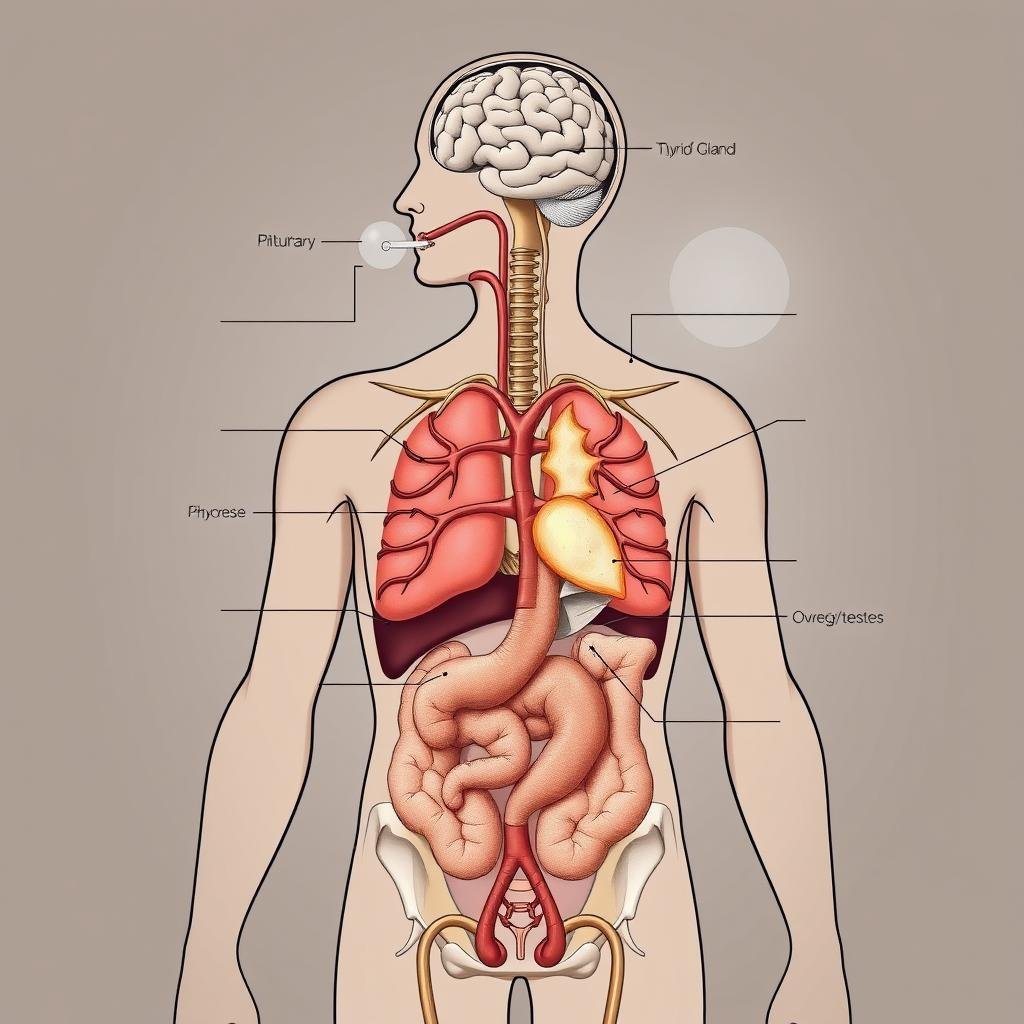If you’re a woman over 30 and feeling off, your hormones might be the culprit. Mood swings, weight gain, fatigue, or irregular cycles are common signs. The good news is, you don’t need harsh meds or extreme diets to feel better.
Keto for hormone balance is becoming a popular choice. It’s a natural way to support your body’s rhythm. By eating healthy fats, clean proteins, and low-glycemic veggies, you can balance your hormones.
This approach helps regulate insulin, estrogen, and cortisol. It boosts energy, improves skin, and supports a healthier menstrual cycle. In this guide, you’ll learn how keto can naturally balance your hormones. You’ll also find out the best foods to eat and easy tips to get started.
Keeping your hormones in balance is key to feeling good, as you move through your 30s and beyond. A ketogenic lifestyle can help in a natural, sustainable way. Many women feel better after switching to a low-carb, high-fat diet.
The keto diet is a science-backed method for achieving hormone balance. It doesn’t rely on quick fixes or medications. By knowing how keto-friendly foods affect your body’s hormone production, you can improve your health.
Key Takeaways
- The keto diet can help regulate hormones in women over 30.
- Hormonal imbalances are common during perimenopause and due to stress.
- A ketogenic lifestyle can alleviate symptoms like mood swings and fatigue.
- Keto foods play a key role in hormone regulation.
- Adopting a keto diet can lead to overall well-being.
The Hidden Connection Between Your Hormones and Health
It’s important for women over 30 to understand how hormones and health are connected. Hormonal shifts can affect your well-being. Many factors can influence your hormonal balance.
Why Women Over 30 Experience Hormonal Shifts
Women over 30 often see hormonal changes as they enter perimenopause. This is a phase before menopause. Estrogen levels fluctuate during this time, causing symptoms. Lifestyle factors like stress, diet, and exercise also play a big role in hormonal balance.
Stress can upset your body’s hormonal balance. When stressed, your body makes more cortisol. This hormone can affect other hormones, like insulin and estrogen.
Common Signs Your Hormones Are Out of Balance
Knowing the signs of hormonal imbalance is key. Symptoms include hot flashes, mood swings, and changes in weight. You might also feel tired, have brain fog, or notice changes in your menstrual cycle.
- Hot flashes and night sweats
- Mood swings and irritability
- Weight gain or changes in body composition
- Fatigue and brain fog
- Changes in menstrual cycle
The Impact of Modern Lifestyle on Hormone Health
Modern lifestyle affects hormone health a lot. A diet full of processed foods and sugar can cause insulin resistance. This is a risk factor for type 2 diabetes. But, regular exercise and a balanced diet can help keep hormones in check.
By knowing what affects hormonal balance and recognizing imbalance signs, you can help your hormone health. Making dietary changes, like following a ketogenic diet, can also help regulate hormones.
Understanding Hormonal Imbalance in Women Over30
Women’s bodies change a lot after they turn 30. These changes can affect many things, like how they feel and their health. Hormones play a big role in these changes.
Key Hormones That Change After 30
After 30, some important hormones change. These include insulin, cortisol, estrogen, progesterone, and testosterone. Each hormone helps control different body functions.
Estradiol and progesterone are key for reproductive health. Testosterone affects libido and energy. Knowing how these hormones change is key to keeping them balanced.
The Role of Insulin in Hormone Regulation
Insulin helps control blood sugar levels. As women get older, their bodies may not use insulin as well. This can lead to insulin resistance and hormonal imbalances.
Eating a diet that helps insulin sensitivity, like the keto diet, can help. It reduces carbs and increases fat. This can improve blood sugar control and insulin function, supporting hormone balance.

How Cortisol Affects Your Hormonal Balance
Cortisol is called the “stress hormone.” It’s made by the adrenal glands when we’re stressed. Too much cortisol can upset the balance of other hormones, causing weight gain, mood swings, and sleep problems.
Reducing stress through meditation, exercise, and a balanced diet like keto can help. It supports adrenal health and reduces cortisol’s negative effects on hormones.
Keto for Hormone Balance: The Science-Backed Connection
The keto diet and hormone balance are linked by science, giving hope to women with hormonal issues. This diet can significantly support hormonal health.
Explore hormone-friendly keto in our women’s hormone guide and Keto PCOS guide.
How Ketosis Positively Impacts Hormone Production
Ketosis, from the keto diet, improves hormone production. It makes your body use fat for energy, improving insulin sensitivity and reducing inflammation. This change helps regulate hormones like insulin, cortisol, and thyroid.
Improved insulin sensitivity is great for women with PCOS. This condition often causes insulin resistance and hormonal imbalance. The keto diet can help by reducing insulin resistance, easing symptoms like irregular periods and fertility issues.
“The keto diet has been shown to improve insulin sensitivity, which is key for women with PCOS and other hormonal imbalances.”
Research Supporting Keto for Women’s Hormonal Health
Studies have looked into the keto diet’s effects on women’s hormones. They show it can greatly improve hormonal balance, mainly in women with PCOS. A study in the Journal of Clinical Endocrinology and Metabolism found it lowered testosterone and improved insulin sensitivity in women with PCOS.
The keto diet also reduces inflammation, a major cause of hormonal imbalance. This reduction supports overall hormonal health.
Metabolic Benefits of Ketogenic Eating After 30
Women over 30 often see metabolic changes that affect hormones. The keto diet offers benefits that support hormonal health during this time. It promotes fat burning and improves metabolic flexibility, helping maintain a healthy weight and body fat.
It also regulates blood sugar and improves energy metabolism, both vital for hormonal balance. Women over 30 can use the keto diet to counter some hormonal changes of aging.
How to Start a Hormone-Balancing Keto Diet
Starting a hormone-balancing keto diet needs a careful plan. It’s important to know how the keto diet affects your hormones. By choosing the right foods and lifestyle, you can use keto to balance your hormones.
Calculating Your Macros for Optimal Hormone Support
Figuring out your macronutrients is key when starting keto. Macros are the fats, proteins, and carbs you eat every day. Aim for 70-80% fat, 15-20% protein, and 5-10% carbs for hormone balance.
To find your macros, first figure out your daily calorie needs. This depends on your age, weight, how active you are, and your health goals. Women over 30 might want to start with a moderate calorie deficit for weight loss and hormone balance.

Transitioning to Keto: A 7-Day Step-by-Step Approach
Starting keto can be easier with a step-by-step plan. Here’s a 7-day guide to help you begin:
- Day 1-2: Cut carbs to under 50 grams a day and eat more fat.
- Day 3-4: Add keto-friendly foods like avocados, nuts, and fatty fish. Start cutting out high-carb foods.
- Day 5-6: Adjust your macros to fit keto ratios. Start using keto-friendly meal plans.
- Day 7: You should be in ketosis by now. Watch how your body reacts and make any needed changes.
Tracking Your Progress: Hormone-Specific Markers
Tracking your keto diet progress means watching for hormone balance signs. Key signs include:
- Blood ketone levels: Use a meter to see if you’re in ketosis.
- Weight and body composition: Watch for changes in weight and body fat.
- Energy levels and overall well-being: Notice any boosts in energy or changes in symptoms like bloating or mood swings.
- Hormone-specific symptoms: Keep an eye on any changes in symptoms like hot flashes, mood swings, or menstrual regularity.
By watching these signs, you can tweak your diet and lifestyle to better support hormone balance on keto.
Top10 Keto Foods That Support Hormonal Balance
To get the most out of keto for hormone balance, add the top 10 keto foods to your meals. These foods are packed with nutrients that help make and control hormones. This helps you reach the best hormonal balance.
Healthy Fats That Regulate Hormone Production
Healthy fats are key on a keto diet. They help make hormones. Make sure to eat these healthy fats:
- Avocados: Full of monounsaturated fats that help make estrogen and progesterone.
- Olive Oil: It’s full of healthy fats that keep hormones in check and boost overall health.
- Coconut Oil: It has MCTs that help make hormones and give you energy for a long time.
Protein Sources for Hormonal Health
Protein is vital for making and controlling hormones. Add these protein-rich foods to your keto diet:
- Fatty Fish: They’re full of omega-3s that help balance hormones and fight inflammation.
- Grass-Fed Beef: It’s a great source of protein and CLA, which helps make hormones.
- Pasture-Raised Eggs: They’re full of protein and healthy fats that support hormone balance and health.
Low-Carb Vegetables Rich in Hormone-Supporting Nutrients
Low-carb veggies are full of nutrients that support hormone balance and health. Add these veggies to your keto diet:
- Leafy Greens: They’re rich in magnesium and minerals that help make and control hormones.
- Cruciferous Vegetables: They have compounds that help the liver detox, which supports hormone balance.
- Asparagus: It’s packed with vitamins and minerals that help make hormones and support health.
By eating these top 10 keto foods, you can help balance your hormones and improve your health. This makes the keto diet even more beneficial.
1-Day Hormone-Balancing Keto Meal Plan for Busy Women
As a busy woman over 30, balancing hormones can be tough. But a well-planned keto meal plan can help a lot. A keto diet that supports hormone balance can improve your energy and overall health.
Breakfast Options to Balance Morning Hormones
Starting your day with a keto breakfast can help keep your hormones balanced. Here are some good options:
- Keto Smoothie: Blend spinach, avocado, coconut milk, and protein powder for a nutrient-rich breakfast.
- Avocado and Bacon Omelette: Whip up eggs with avocado and bacon for a filling breakfast that’s rich in healthy fats.
A study in the Journal of Women’s Health found that women on a keto diet saw better hormonal balance and health.
“The keto diet has been shown to have a positive impact on hormone regulation, particularlly in women over 30.” – Dr. Sarah Hallberg,
Quick and Nutritious Lunch Ideas
For busy women, a quick and nutritious lunch is key. Here are some keto lunch ideas that support hormone balance:
| Lunch Option | Ingredients | Benefits |
|---|---|---|
| Keto Salad | Mixed greens, grilled salmon, avocado, olive oil | Rich in omega-3 fatty acids and healthy fats |
| Keto Wrap | Collagen wrap, turkey breast, avocado, spinach | High in protein and healthy fats |
| Keto Soup | Creamy broccoli soup with coconut milk | Rich in vitamins and minerals |
Hormone-Supporting Dinner Recipes
Dinner is a chance to feed your body with hormone-supporting foods. Here are some keto dinner recipes:
- Baked Salmon: Season salmon with lemon and herbs, then bake until cooked through. Salmon is rich in omega-3s, which support hormone production.
- Keto Stir-Fry: Stir-fry vegetables like spinach, bell peppers, and onions in coconut oil, and serve with grilled chicken or beef.

Smart Snacking for All-Day Hormone Balance
Snacking is key for keeping hormone balance all day. Choose keto-friendly snacks like:
- Macadamia Nuts: Rich in healthy fats and low in carbs.
- Keto Fat Bombs: Made with coconut oil and cream, these are perfect for a quick energy boost.
- Cheese Sticks: A convenient and protein-rich snack.
By adding these hormone-balancing keto meals and snacks to your daily routine, you can support your hormonal health and overall well-being.
Common Keto Mistakes That Disrupt Hormones
When you start a keto lifestyle, it’s key to steer clear of common errors. These mistakes can upset your hormone balance. Many women over 30 have seen their hormonal health improve with the keto diet. But, some wrong steps can undo these gains.

Not Eating Enough Calories
Eating too little on a keto diet can mess with your hormones, like cortisol and thyroid. It’s important to eat enough calories to keep your hormones in check. Women over 30 should aim for foods that are full of nutrients and support their energy.
Overlooking Essential Micronutrients
Lacking certain vitamins and minerals can really affect hormone production. Vitamin D, magnesium, and omega-3 fatty acids are key for hormone health. Make sure your keto diet includes foods rich in these nutrients to avoid shortages.
Ignoring Sleep and Stress Management
Poor sleep and stress can mess with your hormone balance, mainly cortisol. Make sleep a priority and try stress-reducing activities like yoga or meditation. This helps keep your hormones in balance.
Pushing Exercise Too Hard
Exercise is good, but too much can upset hormone levels. Find a balance between working out and resting. Women over 30 should mix cardio, strength training, and flexibility exercises that fit their fitness level.
By avoiding these common keto mistakes, women over 30 can support their hormone balance and health on a keto diet.
Supplements That May Support Hormone Health on Keto
When you’re on the keto diet, some supplements can really help with hormone health. Even with a good keto diet, extra nutrients can make hormones work better.
Essential Minerals for Hormone Function
Minerals are key for keeping hormones in check. Magnesium and potassium are super important on keto. They help with many body functions, like hormone balance.
| Mineral | Role in Hormone Health | Food Sources |
|---|---|---|
| Magnesium | Supports hormone production and regulation | Dark leafy greens, nuts, seeds |
| Potassium | Maintains electrolyte balance, vital for hormone function | Avocados, salmon, spinach |
Adaptogenic Herbs Compatible with Keto
Adaptogenic herbs help your body handle stress better. They keep hormones balanced. Ashwagandha is a favorite because it fights stress and fits well with keto.
- Ashwagandha: Reduces stress, supports adrenal function
- Rhodiola Rosea: Boosts mental clarity, cuts down on tiredness
- Maca: Helps with hormone balance, boosts energy

When to Consider Hormone Testing
If you keep feeling off due to hormone issues, talk to a doctor about testing. It can spot imbalances and help fix them.
Adding the right supplements to your keto diet can boost hormone health and overall health.
Conclusion: Your Path to Hormonal Balance Through Keto
The keto diet is a great way to balance hormones, mainly for women over 30. It makes your body better at using insulin and lowers inflammation. This helps your hormones work better and improves your overall health.
By adding keto to your life, you can manage your hormones better. Eat whole, nutrient-rich foods and watch your macronutrients. A well-thought-out keto diet can help you feel better and be healthier.
To keep hormones balanced on keto, pay close attention and stick to healthy habits. Knowing how keto helps with hormones and making smart choices can make a big difference. This way, you can enjoy the benefits of keto for your health and lifestyle.
Choosing a keto lifestyle can help you find hormonal balance. Keep learning, be patient, and get help from a healthcare expert. This will ensure you’re on the right path.
FAQ
How does the keto diet help with hormone balance in women over 30?
What are the common signs of hormonal imbalance in women over 30?
How do I calculate my macros for a hormone-balancing keto diet?
What are the top keto foods that support hormonal balance?
Can keto help with insulin sensitivity and cortisol levels?
Are there any supplements that can support hormone health on keto?
How do I track my progress on a hormone-balancing keto diet?
What are common keto mistakes that can disrupt hormone balance?
Is keto suitable for women with hormonal imbalances?
How long does it take to see the benefits of keto for hormone balance?

I’ve followed a low-carb and ketogenic lifestyle for over five years, gaining hands-on experience with what is practical, sustainable, and realistic in daily life. My work is informed by continuous self-education through reputable nutrition research and publicly available medical literature.
Read more about the founder →



